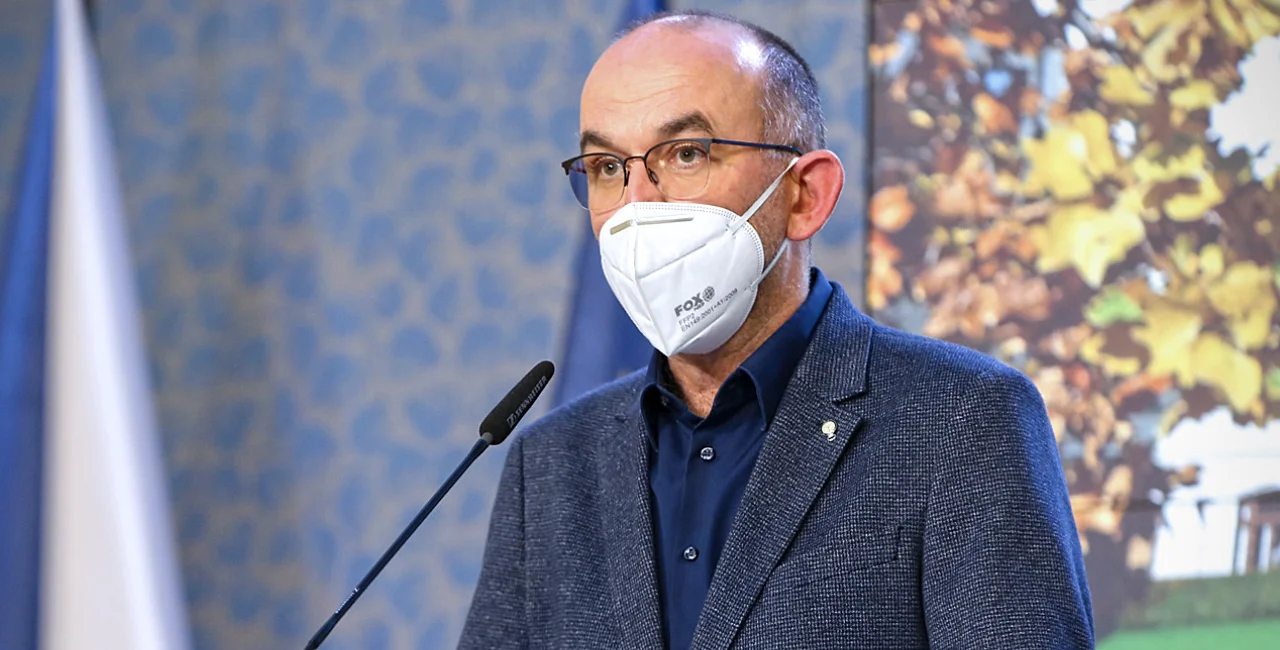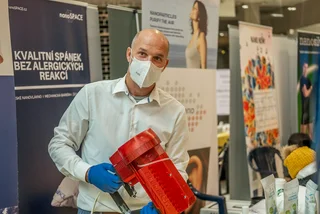Health Minister Jan Blatný said Thursday afternoon that COVID-19 pandemic measures have stopped working in the Czech Republic, and he urged people not to travel between regions.
Blatný said failure of measures to stop coronavirus proves that the British virus mutation is spreading. He made his remarks at a hospital in Cheb, which been facing a critical shortage of beds COVID-19 patients.
“It is a sad fact that the situation in our country is not improving. Statistics show that a mutation in the virus is present in the Czech Republic and is spreading faster. The measures we have put in place have stopped working. The situation is bad,” Blatný said.
People failing to observe the measures is the reason why they must be constantly extended. One day of violating the anti-coronavirus restrictions may lead to their prolongation by up to one week, he added. Currently, the Czech Republic is on the fifth and highest level of restrictions under the PES system.
“Many hospitals are on the verge of [not being able to provide] urgent care. If we really do not start observing the anti-epidemic measures, hospitals will no longer be able to provide even basic care,” Blatný said.
"Let us hold on. I know that this disease has been here for a long time, but it is a simple fact that without the vaccination and the observance of the current measures, we will not overcome it," he said, calling on the public to follow the lockdown rules.
People should not travel across the country, should meet others as little as possible, and wear nose and mouth protective means, he said. Respirators are preferable to simple cloth masks, he added.
“Whatever one might think of the epidemic, it is here. We will not influence it by politics, but only by our behavior,” Blatný said.
Sales Lead | High-Performance Computing & AI

The British mutation of coronavirus spreads at least 35 to 70 percent faster than the current virus. The most affected areas are border mountain districts. The movement of large numbers of people between these regions and the rest of the country increases the likelihood of the disease spreading, he warned.
Blatný pointed out that any other hospital in the country could find itself in the same situation as the Cheb hospital. “That's why we need to do everything much more than before to work together to prevent the spread of the disease,” he said.
However, it is not yet necessary yet to transport COVID patients from the Czech borderland to the neighboring Germany as only a few people could be brought there, Blatný said.
The problems in the Karlovy Vary region, where Cheb is located, are caused not only by the overloading of the Cheb hospital but also by a difficult situation in the entire region, Blatný said.
“We discussed the possibility of cooperation with the Federal Republic of Germany, and it is still open,” Blatný said.
“We regularly talks with consuls and the leadership of federal states, but currently, the capacity of German hospitals resembles ours a lot and in some parts, it is even more overburdened than in the Czech Republic. Therefore a transport of a few patients would not solve the situation of the local hospital, because tens of patients need to be transported,” Blatný said.
Deputy Health Minister Vladimír Černý said during the visit to Cheb that the Czech Republic is considering the purchase of Bamlanivimab, a COVID-19 antibody-based drug, from the US pharmaceutical company Eli Lilly. It aims at reducing the viral load in the body and thus prevents a serious condition of the disease from developing.
In the Czech Republic, over 1 million cases of coronavirus infection have been confirmed; more than 94,500 people are currently infected. The increase in those infected in recent days has stagnated or increased slightly.
There are over 5,811 infected people in hospitals, of which about 1,000 are in serious condition.












 Reading time: 3 minutes
Reading time: 3 minutes 



 Croatian
Croatian
 Slovenian
Slovenian
 Serbian
Serbian
 French
French
 Italian
Italian

























